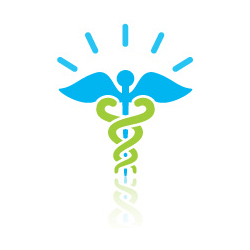After a year of medical school, IBM's Watson passes first milestone


IBM's Watson has made its first commercially-developed cognitive computing breakthroughs, the company announced this morning. They arrive after more than a year of training with healthcare partners WellPoint and Memorial Sloan-Kettering Cancer Center.
Watson, the intelligent supercomputer, has been studying up on oncology and utilization management in an effort to improve the quality and speed of patient care through personalization. Clinicians and technicians have spent thousands of hours to date helping Watson learn to process analyze and interpret the meaning of complex clinical information using the natural language processing it is known for.
Watson has sure been studying hard. To date, the system has ingested more than 600,000 pieces of medical evidence, two million pages of text (from 42 medical journals and clinical trials) and 1.5 million patient records. The idea is to use all of this information -- decades worth, in some cases -- to help healthcare professionals come to more informed decisions about a specific patient's care.
For Memorial Sloan-Kettering, that includes a special focus on cancer. The institution seeks specialized treatments based on a patient's personal genetic tumor type, so it fed Watson 1,500 lung cancer cases -- from physicians' notes to lab results -- to pursue that goal.
The Maine Center for Cancer Medicine and WESTMED Medical Group are the first two institutions to leverage Watson's expertise; their oncologists will serve as early adopters to test the resulting product.
Wellpoint, on the other hand, focused specifically on utilization management. The managed healthcare company fed Watson more than 25,000 test case scenarios and 1,500 real-life cases to better interpret and analyze them. Nurses also spent some 14,700 hours conducting hands-on training with Watson.
The result? Watson has begun processing common medical procedure requests by providers for members in WellPoint affiliated health plans. The goal: accelerate the review process between a patient's physician and their health plan.
As a result, IBM and its two partners are introducing the first commercial products based on Watson: the Interactive Care Insights for Oncology, developed in conjunction with both partners, as well as the WellPoint Interactive Care Guide and Interactive Care Reviewer, developed specifically with that company.
The former is a cloud-based advisor for clinicians to identify individualized treatment options for patients with cancer.
The latter is a platform that analyzes patient treatment requests and matches them to WellPoint's medical policies and clinical guidelines to present, hopefully, better-informed decisions about a patient's care.